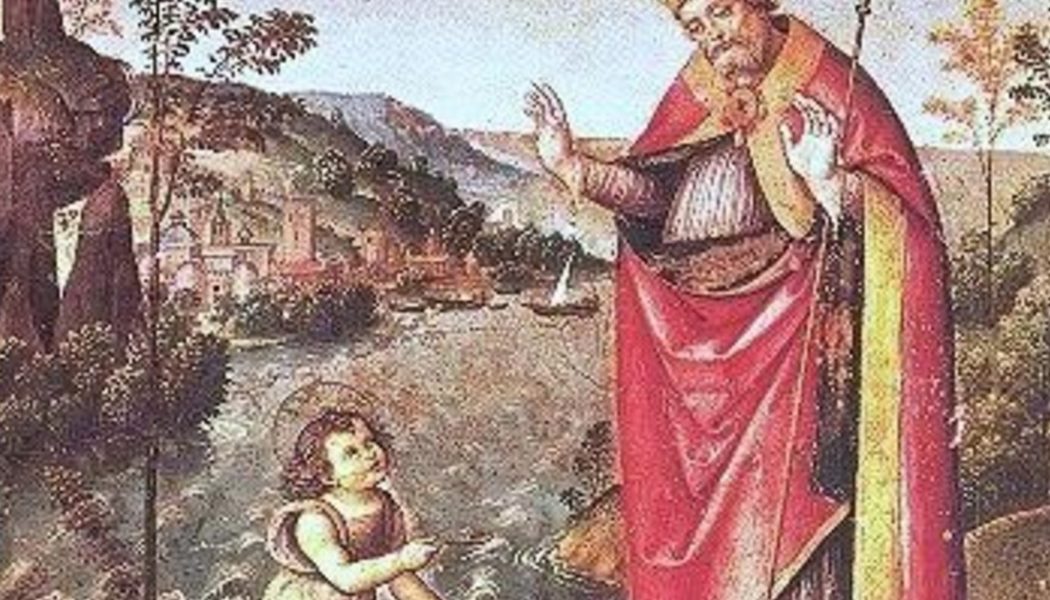
The act of faith requires that the human intellect and human will direct their attention and be in communion with the Son of God Jesus Christ. Hence, faith I argue can be seen as a gift that allows the person to worship the one true God. The Catechism defines faith as a gift from God, a supernatural virtue infused by him.[1] Faith is a virtue whose identity is predicated on the love of the Father toward his children, and the child’s willingness to assent to the Father’s love in obedience. The entire process of developing and exercising faith begins with God providing the gift of grace and for us to have an interior movement of the heart through the power of the Holy Spirit to believe.
Faith as a gift from God reveals an active relationship between man’s intellect and will cooperating with and assenting to God’s Divine will. However, for this relationship to bear continuous spiritual fruits, the gift of faith must be nourished through an understanding of man’s relationship with God the Father through visible signs of God’s love for us. In his first epistle, St. John tells us that whoever confesses that Jesus is the Son of God, God abides in him, and he in God.[2] He goes on to say that if we remain in God’s love, we will have confidence on the day of judgment because we have loved God and our neighbor as ourselves.[3]
The climax of this discourse describes the power of faith rooted in love casting out all fear that reveals the Father’s love for us and enables us to conquer any form of hate with genuine love in the name of Jesus Christ, the Son of God. It also reveals how the faith in Jesus Christ conquers the calamities of the world around us,
Everyone who believes that Jesus is the Christ has been born of God, and everyone who loves the parent loves the one begotten by him. By this, we know that we love the children of God when we love God and obey his commandments. For this is the love of God, that we keep his commandments. And his commandments are not burdensome. For whatever is born of God overcomes the world; and this is the victory that overcomes the world, our faith. Who is it that overcomes the world but he who believes that Jesus is the Son of God?[4]
God’s love is not predicated on the person’s personal disposition of faith or lack thereof because God is the author of love and is not dependent on the permission of man. However, man may impede God’s love not because God is limited. Man’s willful desire to reject God’s love prevents him from receiving the grace that is attributed if he freely chooses to accept it. Once the person makes a clear and conscience decision to desire a relationship with God, specifically through Jesus Christ, then an encounter with the Divine Lord through the Son begins to germinate. An example of this journey to encounter the Divine Lord is found in the life of St. Augustine of Hippo, Doctor of the Church, and the Father of Christian doctrine and philosophy through his wonderful book, the Confessions. One of the most telling aspects of his Confessions was the importance of the virtue of charity. It was in charity that he came to the realization of God’s love for him and that he was entering into an intimate relationship with his son Jesus Christ. Another compelling work that he wrote involves the instruction of the Catholic faith rooted in the virtue of love as a pathway toward the Divinity of Christ. This method is based on His First Catechetical Instruction.
The genesis of his treatise focused on introducing the person to the Word of God and that he is intimately involved in God’s salvific plan because he was made in his image and likeness. Affirming a relationship with our Father in heaven provides a visible construct, oneself as a recipient of God’s love. We are part of the narrative of love as his children in faith.
The letter to the Hebrews reinforces St. Augustine’s thought on the virtue of faith as an integral way to encounter the Divine Lord as the author reminds us that it is impossible to please God without faith since anyone who comes to him must believe that he exists and that he rewards those who try to find him.[5] As one begins to develop an openness to God’s love and thus embrace Jesus Christ the Divine Teacher and Lord a sense of joy may result that encourages a desire to live a life nourished by the Word of God. This path leads the individual to formally anchor himself to Christ and trustingly receive his Divine love.
The following excerpt provides us with insight into St. Augustine’s preparation to receive Christ the Divine Teacher,
The true Mediator was he whom you revealed to humble men in your secret mercy, and whom you sent so they might learn that same humility by following his example. This was the Mediator between God and man, the man Christ Jesus, who intervened between sinful mortals and the immortal Just One, himself mortal like men, and like God, just. Thus, since life and peace are the compensation for righteousness, he could, by a justice united with God, annul the death of sinners now justified, since he willed to share death with them.
Good Father, how you loved us, sparing not your only Son but delivered him up for us sinners! How you loved us, for whose sake he, thinking it no robbery to be equal with you, was made subject to death on the cross. He alone, free among the dead, had the power to lay down his life and the power to take it up again. For our sake, he became in your sight both victor and victim – victor, indeed, because he was victim. For our sake, too, he became before you both priest and sacrifice – priest, indeed, because he was a sacrifice, changing us from slaves to sons by being your Son and serving us.
Rightly then have I firmly hope that you will heal all my infirmities through him who sits at your right hand and intercedes for us. Otherwise, I should despair. For great and numerous are these infirmities of mine, great indeed and numerous, but your medicine is mightier. We might have thought your Word remote from any union with man, and so have despaired of ourselves if he had not become flesh and dwelt among us.
Crushed by my sins and the weight of my misery, I had taken thought in my heart and contemplated flight into the desert. But you stopped me and gave me comfort with the words: Christ died for all, that those who live might no longer live for themselves but for him who died for them.
Behold, Lord, I cast upon you my concern that I may live and I shall meditate on the wonders of your law. You know my ignorance and my weakness; teach me and heal me. Your only Son, in whom are hidden all the treasures of wisdom and knowledge, redeemed me with his blood. Let not arrogant men speak evil of me. For I meditate on my ransom, and I eat it and drink it and try to share it with others; though poor I want to be filled with it in the company of those who eat and are filled and they shall praise the Lord who seek him.
From the Confessions of Saint Augustine
(Lib. 10,43,68-70: CSEL 33:278-280)



![The Vatican extended Xi’s pontificate because it doesn’t understand the nature of the Chinese regime [WSJ paywall]…](https://salvationprosperity.net/wp-content/uploads/2022/10/the-vatican-extended-xis-pontificate-because-it-doesnt-understand-the-nature-of-the-chinese-regime-wsj-paywall-327x219.jpg)



